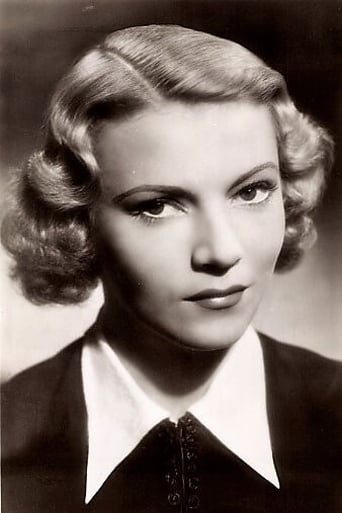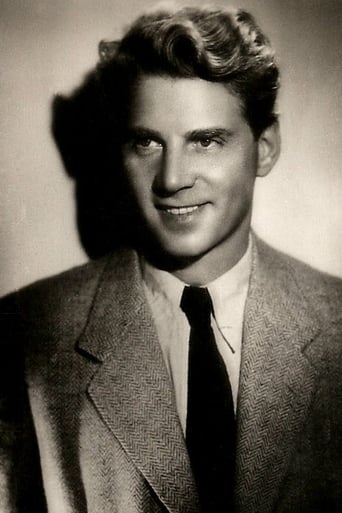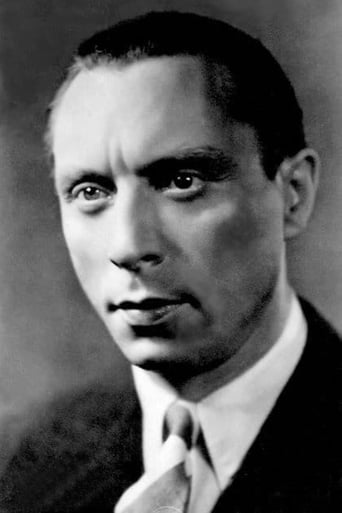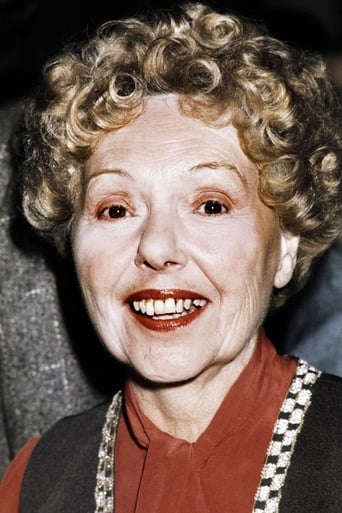boblipton
Annabella and Jean-Pierre Aumont check into the Hotel du Nord. The are shown to their room and talk about killing themselves. Then Aumont shoots Annabella and runs away.Looking at Marcel Carne's movies from before the Second World War, one is continually struck by his poetic realism. At times it seems as if he is trying to direct movies like Julien Duvivier, except that his characters are not archetypes doomed by some grand fate. They're just people, struggling for a bit of happiness, sometimes succeeding, sometimes failing. Duvivier, one gets the impression, doesn't really like his characters. Carne is willing to judge them on their own merits, with an almost Olympian sense of humor.Others might prefer one movie or the other, but this is my personal favorite, because of the wonderful way in which the characters ar written and depicted by fine actors. No doubt, a great part of this is due to the source of this movie, a novel by Eugene Dabit, that had me thinking "Maybe not everyone comes to Hotel du Nord, but they're very interesting people:" the kindly proprietors; the simple and slovenly housekeeper; but most of all Arletty as a prostitute and Louis Jouvet as her creepy and looks-obsessed kept man, who grows slowly throughout the movie.You might prefer another Carne film or none at all. I can't fault you for differing in taste from me. I'll still stick with my call for this as Carne's best and a great movie.
alice liddell
Fragile Carne, just before his great period. Although it is sometimes hesitantly directed, and marred by longueurs, HOTEL DU NORD is full of the faded charm and beauty typical of French films of the late 1930s, as well as a relative lightness of touch unusual with this director. All of his great virtues are here: the cramped interiors broken up by gliding, complex, delicious camera movements; a melancholy deployment of light and shade; remarkable, wistful sets by Alexander Trauner, which are so evocative that they, as the title suggests, take on a shaping personality of their own; the quietly mournful music of Maurice Jaubert; a seemingly casual plot about romance, tragedy and fatalism that casts a noose over its characters; extraordinary performances by some of the greatest players of all time, in this case Louis Jouvet and Arletty.In fact, the film's biggest failing, and I find myself astonished (as someone who usually, didactically, minimises its importance) to admit it, is its script. It has plenty of wit and poignancy, but without the poetry and irony regular Carne collaborator Jacques Prevert brought to their best films, it cannot avoid slipping into cliche (even if it is only cliche in hindsight).Ostensibly set in the boarding house, the film sets up its opening idea of community with two interconnecting tales of doomed love, and emotional, metaphysical and actual isolation The doomed love scenario is the one that works least well. Annabella is very beautiful, but not very good at doing tragic, while Aumont's callowness, brilliantly appropriate though it may be, by its nature obtrudes any real, felt, romance. Maybe it's just me, but I find it hard to sympathise with a couple, so young, so attractive, who, after only a few months, are so racked with despair that they have to shoot each other. Their high-flown lines are rather embarrassing too. Of course, this affair is not meant to be plausible - they are symbolic of youth, hope and possibility being crushed in France, or maybe France itself, despairing, resigned, waiting for death. For symbols to be truly powerful, they must convince on a narrative level, which, I feel, they don't quite here.What saves this plot is its connection with the story of M. Edmond, a character linked to the great tradition of French gangsters. Although we only learn it gradually, he is a killer in hiding, living off the prostitute played by Arletty, having dobbed in his accomplices. In his previous 'role' - and the theatricality of his position is crucial - he had one set of traits; in hiding he has assumed their complete opposite. Living a rather aimless life, he is profoundly shaken by the lovers' pact, and becomes fatalistic, realising the folly of trying to cheat death.In this way - the admission that one is less a person than a collection of signs, and that death is an unavoidable reality the most powerful masculinity must succumb to - Edmond is like a romantic prototype of Melville's clinical killers. With one exception - he gives briefly into hope, a delusion which only strenghtens - if that's not too much of an unbearable irony - his fatal resolve.All this could have been trite if it wasn't for the truly amazing performance of Louis Jouvet. I had studied his theatrical work at college, but this was my first taste of his screen talents, and he reveals himself to be worthy of the greats - Grant, Mastroianni, Clift, Mason, Mitchum, Cotten - giving a quiet nobility to a role which is more of a conception (he, needless to say, is allegorical too) than an actual person. Edmond begins the film a minor supporting character, but emerges as a tragic hero of some force. Like all those major actors, Jouvet's brilliance lies in what he conceals.On a formal level, what amazes is Carne's grasping, ten years before its flourishing, of the techniques of the great Hollywood melodramas of Sirk, Ophuls, Ray and Minnelli. Although his theatricality lacks the fluidity and clear-eyed beauty of Sierck's contemporary German melodramas (check out the masterpieces ZU NEUEN UFERN and LA HABENERA), Carne's style truly fits his theme - that of entrapment, paralysis, resignation.The film's principle motif is that of water - the credits float and dissolve, the hotel stands by a waterway - but instead of Renoir's open river of possibility, we have a canal, stagnant and manmade, going nowhere. The film begins as it ends, and the setting never changes, except for one brief interlude from which both escapees are doomed to return. Characters can only escape through death - their entrapment is emphasised by the narrow rooms they occupy, the walls and frames that hold them captive, the windows that look out on an escape they can never achieve. Any hope at the end, therefore, is profoundly, if romantically, compromised.




